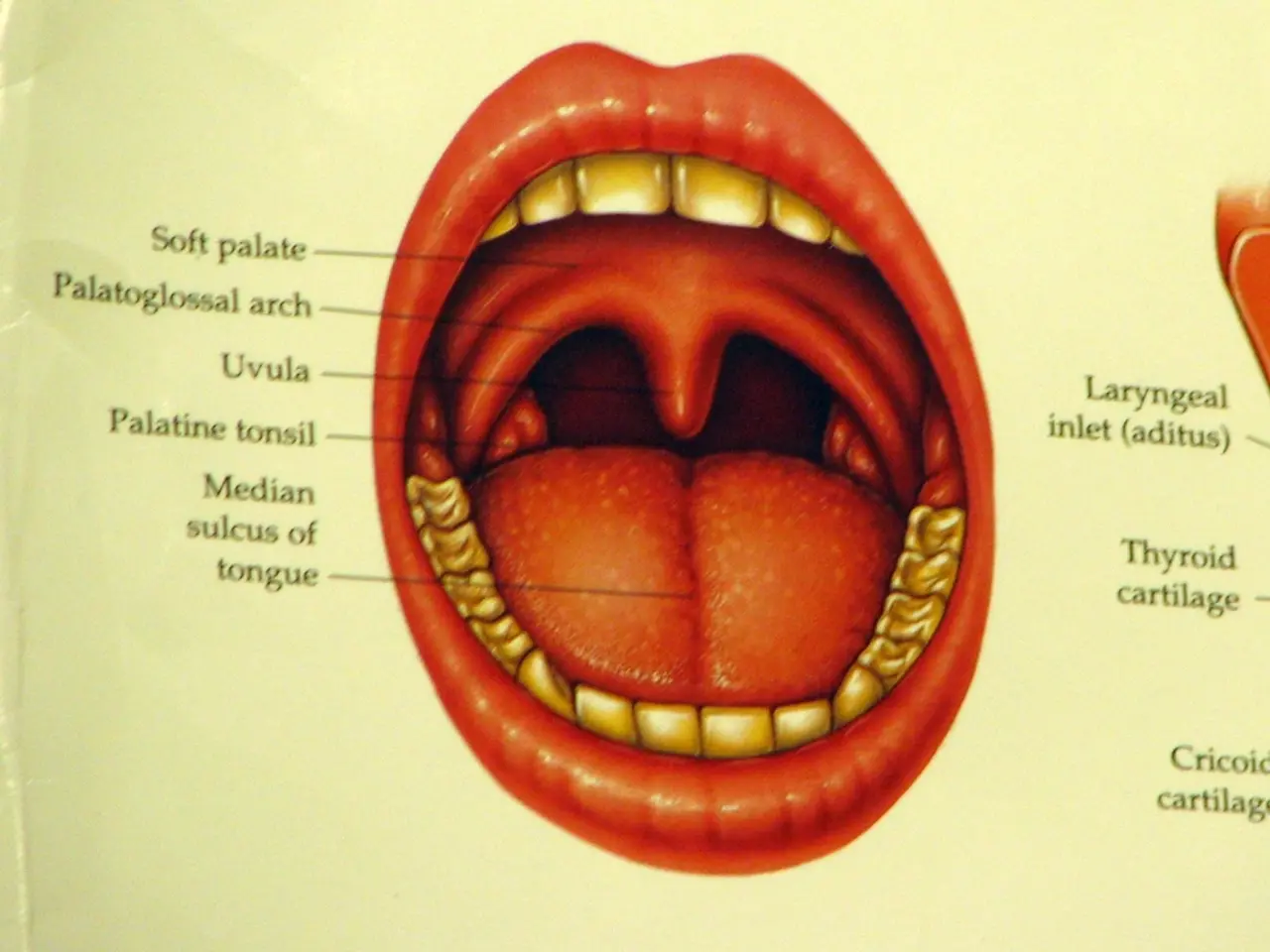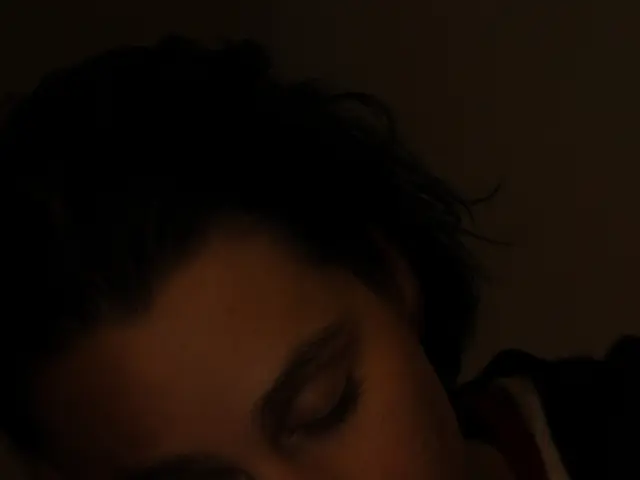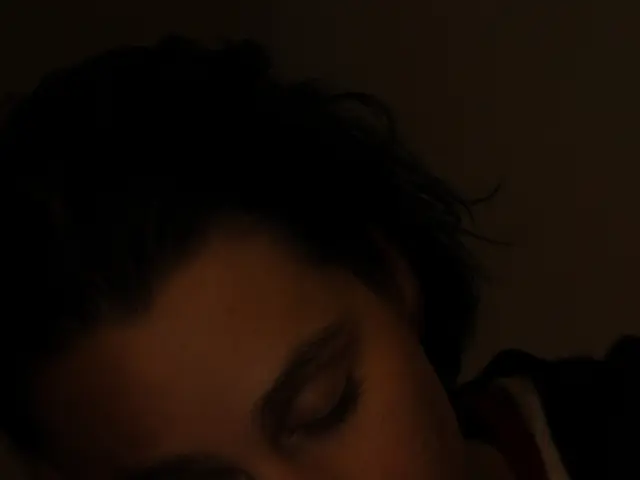Dentist's Role in Alleviating Sleep Apnea
Having Trouble Sleeping? Maybe it's Sleep Apnea - But Your Dentist Could Help!
My husband was struggling with sleep issues, and I feared he had obstructive sleep apnea (OSA) - a condition where a person repeatedly stops breathing throughout the night. But what worried me more was the seven cardiovascular complications associated with OSA that can escalate heart trouble and type 2 diabetes.
Diagnosing OSA, however, isn't a walk in the park. It typically demands a visit to a sleep clinic with complicated monitoring equipment, and my husband experienced this firsthand, even having to redo his home test multiple times for an accurate reading.
Luckily, there's a potential new way to find out if OSA poses a threat to your health without needing a trip to the sleep clinic - a place you should already be visiting every six months!
Your Smiley Dentist to the Rescue!
An international team of researchers dived deep into the neuroscience of sleep, focusing on its relation to dental medicine. Their goal was to share expert knowledge with dental professionals, shedding light on sleep's crucial role in overall health [1].
"Dentists are our first line of defense against sleep disorders," said Davis Thomas, a professor at the Rutgers School of Dental Medicine and the review's senior author. "They often spot symptoms before physicians, such as tooth grinding, tongue scalloping, or even a patient dozing in the chair."
Check these physical symptoms your dentist should be on the lookout for during your dental exam [2]:
- Breathing difficulties or noisy breathing during sleep
- Chronic snoring
- Frequent mood changes or depression
- Morning headaches
- High blood pressure
- Fatigue or sleepiness during the day
- Reduced libido
If dentists detect these symptoms, they can potentially diagnose up to 80 percent of at-risk patients based on their physical exam, patient history, and other screening tools [3].
Not only are they observing your teeth, but they're also paying attention to your behavior and any subtle signs in your oral cavity.
"We must look at the whole patient, not just their teeth," Thomas adds.
Research suggests that bruxism, or teeth grinding, isn't only caused by a dental misalignment but can be a symptom of underlying sleep disorders [4]. By understanding the neuroscience behind sleep disorders, dentists can provide more comprehensive care and potentially prevent serious health complications.
When to Take a Nap - Sleep Study, That Is!
Dentists are encouraged to include sleep-related questions in patient forms, train dental staff to recognize physical signs of sleep disorders, and use screening tools like the STOP-BANG questionnaire. This simple practice can help prevent future complications such as high blood pressure, heart disease, and stroke [5].
Holistic and naturopathic dentists might already be sprinting ahead in the OSA race, as they tend to focus on the root causes rather than just symptoms of conditions, such as jaw misalignment affecting the airway and tongue position during sleep.
A knowledgeable dentist can recommend custom oral appliances like mandibular advancement devices (MAD) or tongue-retaining devices to help prevent the lower jaw slipping back during sleep.
If you're in an at-risk group for OSA, it might be a good idea to get tested. If your sleep specialist decides an oral appliance is the way to go, they can refer you to a dentist who can help with a proper fitting.
Risk factors for OSA include:
- Age (50 or older)
- Male sex
- Obesity
- Congestive heart failure
- Atrial fibrillation
- Endocrine disorders (including diabetes)
- Smoking
- Alcohol use
- Use of sedative or hypnotic medication
Editor's note: Did you know that poor dental health is linked to America's top killer? Not to mention kidney disease, rheumatoid arthritis, Parkinson's disease, depression, and so much more! Click here to learn how to protect yourself and your family from this hidden dental health crisis!****
Sources:
[1] Your dentist may save your life from sleep apnea - StudyFinds[2] The enigma of sleep - JADA[3] Obstructive Sleep Apnea - National Library of Medicine[4] Bruxism and sleep apnea: causes, diagnosis, risks and treatment - Sleep Review[5] The role of dentists in the diagnosis and management of obstructive sleep apnea - Sleep Review[6] Holistic dentistry and sleep: *The interplay between sleep, dentistry, and health" - Journal of the American Dental Association (JADA)
- The neuroscience of sleep has been explored in depth by a team of international researchers, with a focus on its connection to dental medicine.
- Dentists are considered crucial in the detection of sleep disorders, as they often notice symptoms such as tooth grinding, tongue scalloping, or a patient dozing during exams before physicians do.
- If dentists identify physical symptoms like breathing difficulties, chronic snoring, morning headaches, high blood pressure, fatigue, or reduced libido, they can potentially diagnose up to 80% of at-risk patients.
- By understanding the neuroscience behind sleep disorders, dentists can offer more comprehensive care, potentially preventing serious health complications like high blood pressure, heart disease, and stroke.








